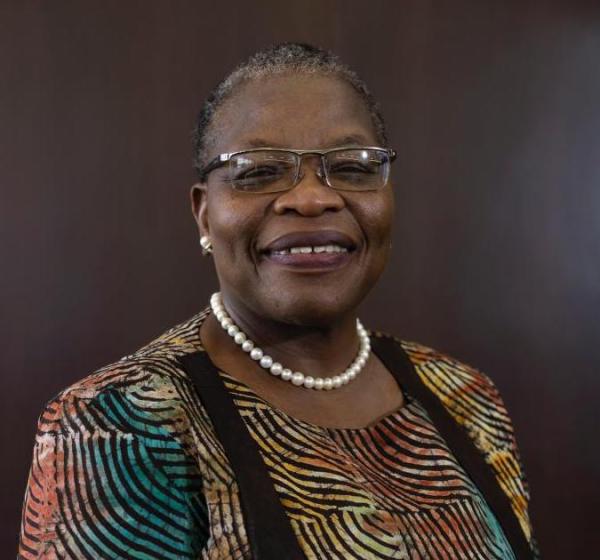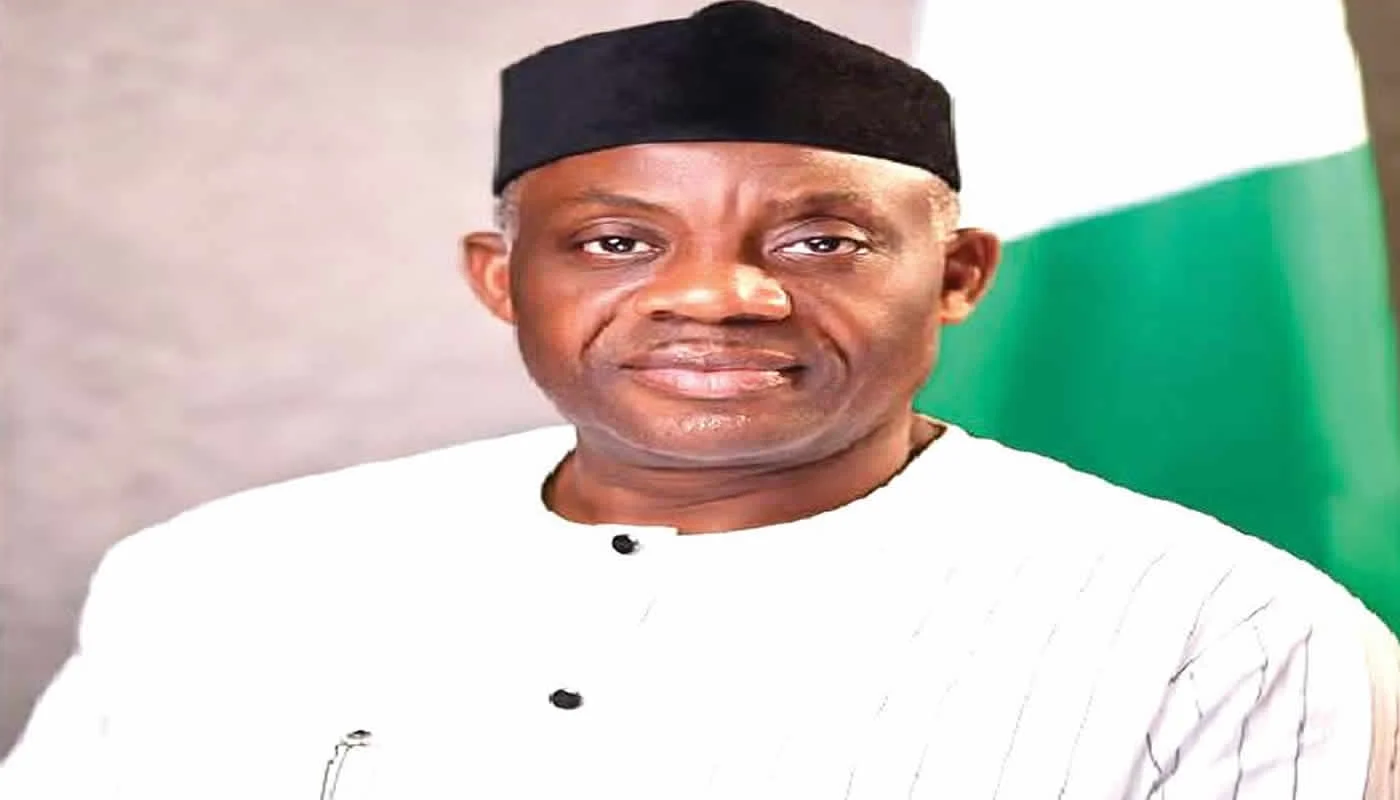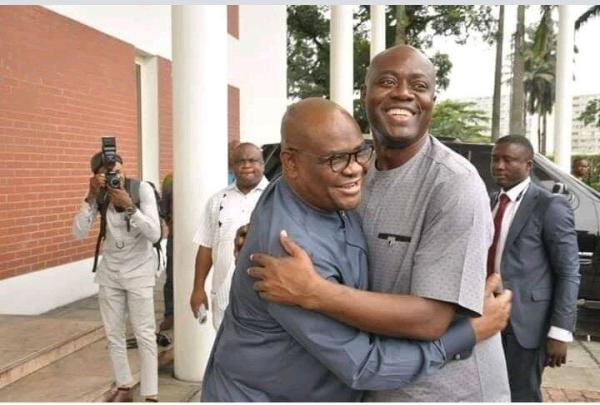
Hon. Bolanle Agbaje
The legislative branch of government has always had a significant influence on the workings of the executive. The Oyo State House of Assembly in its last sitting had the first reading of a number of bills and also adopted the request of Governor Abiola Ajimobi of ten special advisers. CEOAFRICA had an exclusive interview with one of the honourables at the House who discussed extensively on a number of salient issues. Below are excerpts of the exclusive interview with Kadiri Tolani:
Would you kindly let us meet your acquaintance?
I am Honourable Mrs Bolanle Agbaje representing Ibadan North 1 state constituency.
How did you begin your foray into partisan politics?
I entered into partisan politics in 2009 under the membership of the now defunct Action Congress (AC). I came out for the State House but as God would have it, I was not able to make it through the primaries. My second attempt was fruitful and as God would have it, I found myself in the State House of Assembly under the flagship of the All Progressive Congress (APC).
The emergence of the minority leader in the Oyo State House of Assembly was labeled in some quarters as a travesty of justice. What is your take on this?
Well, there is nothing extraordinary as to how the minority leader was chosen because going by the House rules; there are provisions for us to suspend certain rules for there to be a way forward and that is exactly what we did. And then you will realise that in the process of putting it into votes, the result was more like a consensus
One of the political parties with seats in the Assembly was at the losing end, has it led to any form of bickering?
Not at all
Analysts have often ascribed the unworkability of our Federation to the fact that the kind of federalism we practise is a deviation from fiscal federalism. Do you think the emergence of the APC at the mainstream will cause a change in the status quo?
Well, I absolutely concur with you in that regard. The type of federalism we practise is what I call pseudo-federalism. I prefer to use that term because if you ask me, the 1999 constitution is an offshoot of the autocratic junta. The federal government has arrogated so much power to itself to such an extent that most states in the federation no longer have the resources to cater for their domestic responsibilities.
A good number of those avenues through which they could have attained self-sustenance have been put on the exclusive list of the federal government. The federal government is so powerful to such an extent that its wish overrides even certain items on the concurrent list.
From a more encompassing perspective, I think the malady we face as a country boils down to the society. We are Africans and if you trace our antecedents from pre-colonial times, you will appreciate the similarities between how kingdoms of the past used to operate and how we practise our federalism. The old Oyo kingdom was so powerful such that vassal states under it had little or no autonomy. The same applied to the North where the Fulani had emirs in most states. That notwithstanding, the Nigerian state has been undergoing its trial-and-error process in the last sixteen years and it is only a matter of time before our democracy evolves into a ripe one.
With reference to your emphasis on the African society, it is pertinent to ask if you have ever been a victim of sexism since you joined partisan politics.
To a considerable society, gender disparity is a global phenomenon and women in the African society seem to bear the brunt most. The orientation is gradually being fine-tuned however. At least, women now have the thirty percent affirmative clause in Nigeria politics. The participation of women in Oyo State is stands at seven percent while the state with the highest participation of women is barely ten percent. The intention and nomination forms are usually doled out free of charges to women while the male aspirants usually pay for them in most political parties. It is nevertheless important to note that the hesitance of most women to join partisan politics is owing to the mentality of the African society. The general belief especially among the conservative ones is that most the traditional role of the woman should be in the home.
That mob mentality is however waning. A number of men now see the reason to support the political zest of their wives. Once you have that mutual trust in your wife, all she needs from you is that encouragement to pursue her dreams. When a man encourages his wife, he is invariably encouraging himself. The success of a woman is also the success of her husband as long as she is being referred to by his name. I personally don’t think most of my acquaintances and associates know my maiden name. I sought the consent of my husband before giving partisan politics a thought. It was after I got his approval that I joined. Ever since then, he supported me both financially and morally and that I will eternally be grateful to him.
The cost of running the government in Nigeria is very expensive and arguably one of the most luxurious in the world. The legislature is believed to enjoy the most considerable chunk in the cost of governance. Do you think our legislators are actually being overpaid?
It really depends on the yardstick we intend using to measure that. Basically, legislators are expected to report to their constituencies. They are saddled with the responsibility of executing projects in their constituencies and also imparting the lives of those in their constituencies economically. That is not to say that I approve of their over bloated salaries which are not in proportion with the economic situation of the country. If it is a general consensus among the legislators that it is imperative for them to have a slash in their allowances, then so be it.
Personally, I believe legislators should be held more accountable for their stewardship by their various constituencies. If what they earn is not in tandem with their productivity, it becomes a thing of necessity to put their pay package upon inquiry. What we however need to put more emphasis upon is the cost of governance itself. Even the cost of vying for political positions could be staggering. This on its own often affects the naira adversely and leads to inflation. You will then realise at this juncture that what we should really crave for is an overhauling of our constitution.
Some have sentimentally argued that Ibadan is the only old regional capital yet to become a state. Do you also think that Ibadan deserves to be a state going by its geographical size, population and historical antecedents?
Being a native Ibadan, I am equally of the opinion that Ibadan deserves to be a state. Population-wise and geographically, Ibadan is larger than some states in Nigeria, thus making it a state is long overdue. Going by the economical demands of the city alone, Ibadan undoubtedly deserves to be a state. Over 50 per cent of the electorates in Oyo State are from Ibadan and that I believe is a reflection of the city’s population burden.
But for the need to be in tandem with the federal character, the old Oyo should have been divided into three states. As we speak, over fifty ethnic groups in Nigeria are craving for their own states. This then brings us back to the question of viability. Even with the current thirty-six states that we have, how many of them can really survive without federal allocation. This is the reason why I told you earlier that the kind of federalism we run is pseudo-federal in nature. If Ibadan becomes a State, it is likely to also go cap-in-hands to the federal government as long as its potentials are confined by the extant laws of the constitution.
It was reported online by one of the dailies that Governor Abiola Ajimobi had a frosty reception with some reporters while he and other governors went to Abuja to see President Muhammadu Buhari for a bail-out from the current financial crisis. Do you think that was a personal weakness on his path?
In the first place, it is important to know the circumstance under which the governor was approached. People should realise that those within the corridors of power are as human as they are. There are times when one might not be in the mood to attend to the press or tolerate irritating confrontations.
All the governors who were in Abuja as at then went there because they needed a bail-out. President Buhari equally admitted that he met an empty treasury so you can appreciate the financial crisis which these states have suddenly found themselves. The lamentation among civil servants and pensioners in Oyo State is saddening but there is absolutely nothing the current administration can do to salvage their hopes without a lifeline from the centre.
The governor is a civil person and would not yell at anyone without any form of provocation in the first place. We all have our temperaments and I believe respect should be reciprocal.
Thanks for the audience
You are most welcome






















